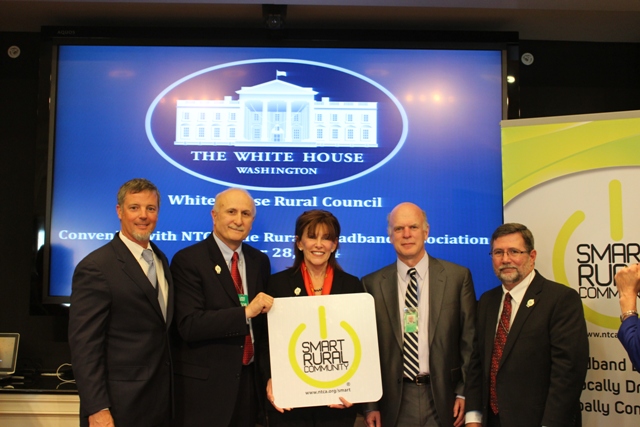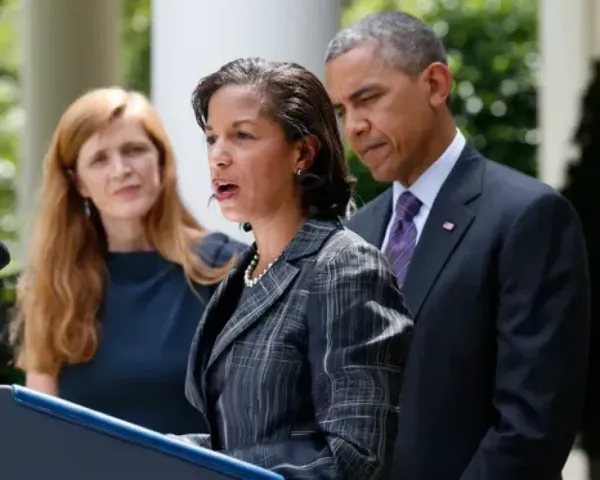White House Rural Council Meets with Officials from NTCA, or Rural Broadband Association
WASHINGTON, October 30, 2014 – Members of the White House Rural Council and the trade group NTCA, or Rural Broadband Association, met on Tuesday at the Executive Office Building to discuss the group’s Smart Rural Community Initiative. Additionally, the NTCA held a telecom executive policy summit and
WASHINGTON, October 30, 2014 – Members of the White House Rural Council and the trade group NTCA, or Rural Broadband Association, met on Tuesday at the Executive Office Building to discuss the group’s Smart Rural Community Initiative.
Additionally, the NTCA held a telecom executive policy summit and lobbying event with more than 100 association members holding dozens of meetings on Capitol Hill.
“Members of NTCA are proven solutions providers when it comes to broadband services for the communities where they live and work.” –NCTA CEO Shirley Bloomfield.
By hosting educational events for professionals and administering awarding certification and recognition to rural broadband providers that meet certain standards, the smart community initiative promotes “rural broadband networks and their broadband-enabled applications that communities can leverage to foster innovative economic development, commerce, education, health care, government services, public safety and security and more efficient energy distribution and use,” she said.
“Expanding telecommunications is a central component of this administration’s comprehensive effort to build jobs and economic security in rural America,” said Doug McKalip, senior policy advisor for rural affairs for the White House Domestic Policy Council.
|
Council’s Objectives
|
|
1) Opportunity: Increasing the flow of capital to rural areas, job creation, and workforce development.
2) Innovation: The expansion of telecommunications, renewable energy, and new markets for rural communities. 3) Quality of Life: Increased access to quality health care, education, and housing, and particularly in persistent poverty counties and tribal areas. 4) Conservation: Expansion of outdoor opportunities and economic growth. |
The White House Rural Council was formed in June 2012 under an executive order to streamline the effectiveness of federal programs serving low-income residents of rural communities. The council also promotes and coordinates private-sector partnerships, including a $10 billion private investment fund the council announced in July 2014 to finance job-creating infrastructure projects in rural America.
In 2011, the council travelled through 200 rural communities in 46 states to meet with residents, community leaders and other stakeholders and held community forums and town halls meetings to discuss various areas of concern. Along with the administrative staff, the members of the council include the leaders of 25 executive agencies, including those from the Department of Transportation, Small Business Administration, Office of Science and Technology Policy, FCC, Department of the Interior and the Department of Labor.











Member discussion